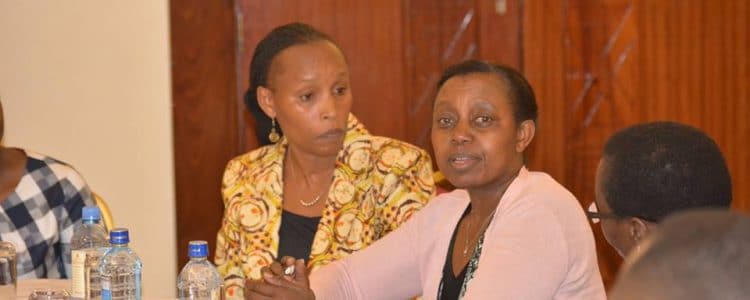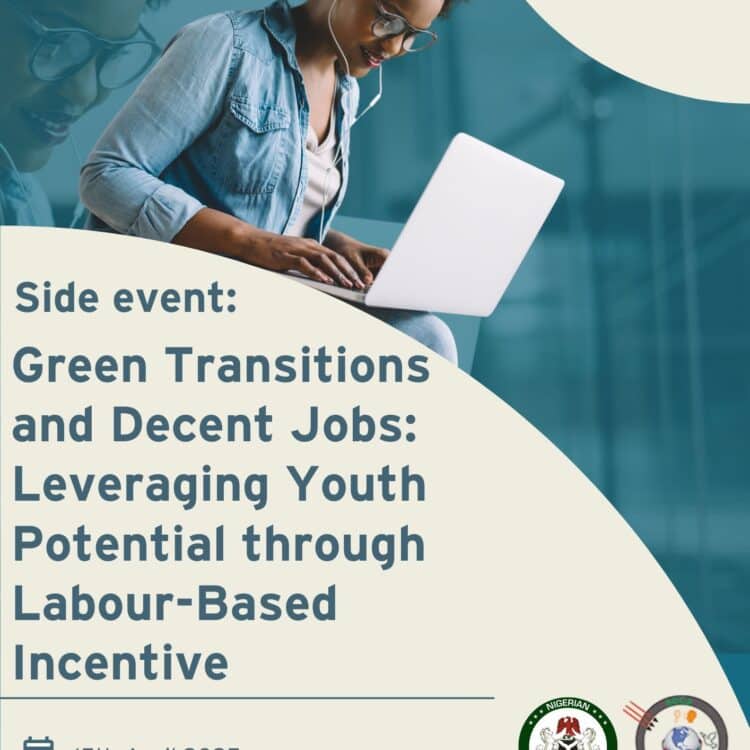
Utafiti Sera, one of the INCLUDE-funded African Policy Dialogues on productive employment in Kenya, held an engagement forum with members of the Amani National Congress (ANC) technical committee in Nairobi on 14 March 2017. ANC is part of the National Super Alliance (NASA), a coalition of political parties seeking to participate in the upcoming elections in Kenya. Over 33 stakeholders from the Utafiti Sera community of practice and ANC technical committee attended the meeting. The forum commenced with opening remarks on the purpose and objectives of Utafiti Sera and an overview of the ANC-NASA technical committees. This was followed by the presentation of key findings and policy recommendations on employment creation in the sugar and horticulture sectors and a plenary discussion on how to transform the sugar and horticulture sectors in Kenya.
Utafiti Sera is a platform for key stakeholders who seek to work and collaborate with others to ensure that research evidence informs policy and practice. Previous stakeholder forums have offered an opportunity for researchers, policymakers and practitioners to discuss wage employment creation in Kenya. The first forum, which was held on 7 June 2016, launched Utafiti Sera and discussed the findings of the study on ‘The political economy analysis of employment creation in agriculture and agro-processing in the context of inclusive growth in Kenya’. The second forum was held on 15 November 2016 and discussed employment creation in the sugar sector in Kenya, focusing on dilemmas in the political economy and the role of Utafiti Sera. The third forum on 19 January 2017 focused on employment creation in the horticulture sector in Kenya and the role of Utafiti Sera.
The purpose of the current meeting was to explore two issues relevant to employment creation in the sugar and horticulture sectors. The first one is the effect of the importing of sugar on wage employment in the sugar sector and the second is contract governance and market access in the horticulture sector. Addressing these two concerns can contribute to enhancing productive employment in the two sectors and to inclusive development in Kenya in general. It is hoped that political party policy and strategy teams that attended the meeting will consider these issues when developing their party manifestos.
The ANC technical team conducts research, handles policy matters related to the party, and is responsible for negotiating with other parties on matters of mutual interest. One of the issues that the team is considering is whether to focus on agriculture as a sector or on specific policies in agriculture. The team attended the forum to learn how to enrich their manifesto and to include practical solutions that can easily be implemented.
Employment creation in the sugar industry
The first presentation and discussion focused on declining wage employment along the sugar value chain and the policies required to address this. The main message was that although the sugar industry is a major employer of labour and contributes to the livelihoods of many Kenyans, wage employment has declined due to various challenges, including:
- Local sugar suffers from high production costs, compared to imported sugar.
- It is difficult for smallholder farms to grow cane economically, due to poor cane husbandry practices.
- Public sugar mills are operating at below their installed capacity due to a shortage of cane, among other things. Cane poaching between sugar millers remains a key problem.
- Public sugar millers hire more workers than needed, which increases their operating costs. At the same time, the management of these mills does not incentivise farmers to produce more cane.
- At the farm level, cane yields are generally low in terms of quantity per hectare and the sucrose content of the cane.
- Inconsistent sugar import policies also pose a challenge. Sugar has been labelled as a ‘political crop’ due to political interference in the growing, milling and marketing of sugar, which undermines the industry’s competitiveness and employment potential. For example, the alleged sugar shortage in the country has been used to justify the issuing of sugar import licences to political elites.
Recommendations:
- Address the high costs of production in the industry through affordable production inputs and the use of appropriate cane transporting and milling technologies
- Improve the management and operation of sugar mills factories for increased output to reduce the need for sugar imports
- Ensure the adherence to strict guidelines in the issuing of sugar import licences and permits and formulate guidelines to estimate the actual sugar deficit in the country
- Implement interventions and measures to integrate sugarcane growing with high value horticultural crops
Employment creation in the horticulture industry
The second presentation and discussion focused on employment creation in the horticulture sector in Kenya. The findings from Utafiti Sera’s studies are as follows:
- The horticulture industry employs over 10 million people directly and indirectly, most of whom are women and youth.
- More jobs were created in the cut-flower subsector than in the agriculture sector between 2005 and 2014.
- Wages in the cut-flower subsector are higher than in other agricultural subsectors.
- The main challenges to the employment creation potential of the sector include low labour productivity, especially in smallholder farms, weak governance of out-grower contracts, limited access to markets, high costs of production due to the high cost of inputs, and difficulties with compliance due to constantly changing standards.
Recommendations:
- Establish capacity development centres, platforms and extension services, especially for youth who are in (or interested in being in) the sector
- Invest in market service centres to provide backward and forward linkages along sugar and horticulture value chains (the aim is to ease coordination problems due to lack of information and provide opportunities for product bulking among smallholder farmers, which is attractive to investors in contract farming)
- Establish an innovation fund to finance agribusiness research and development and to support innovation
Conclusion
A representative of the ANC technical team concluded that the issues raised during the forum were important, not only for political parties, but also for citizens. The member indicated that the team would closely study the research evidence and recommendations made by Utafiti Sera, identify appropriate recommendations, and include them in the ANC manifesto. In particular, the party will focus on recommendations that address unemployment among youth. In addition, ANC representatives will follow up on the sugar legislation that has been drafted by stakeholders, but has not been finalized. They will also work with regulators to ensure that the interests of farmers are taken into account in sector regulations and policies. The ANC selected five members who they could call on as they draft their manifesto.
You can also download the report using the link below.




